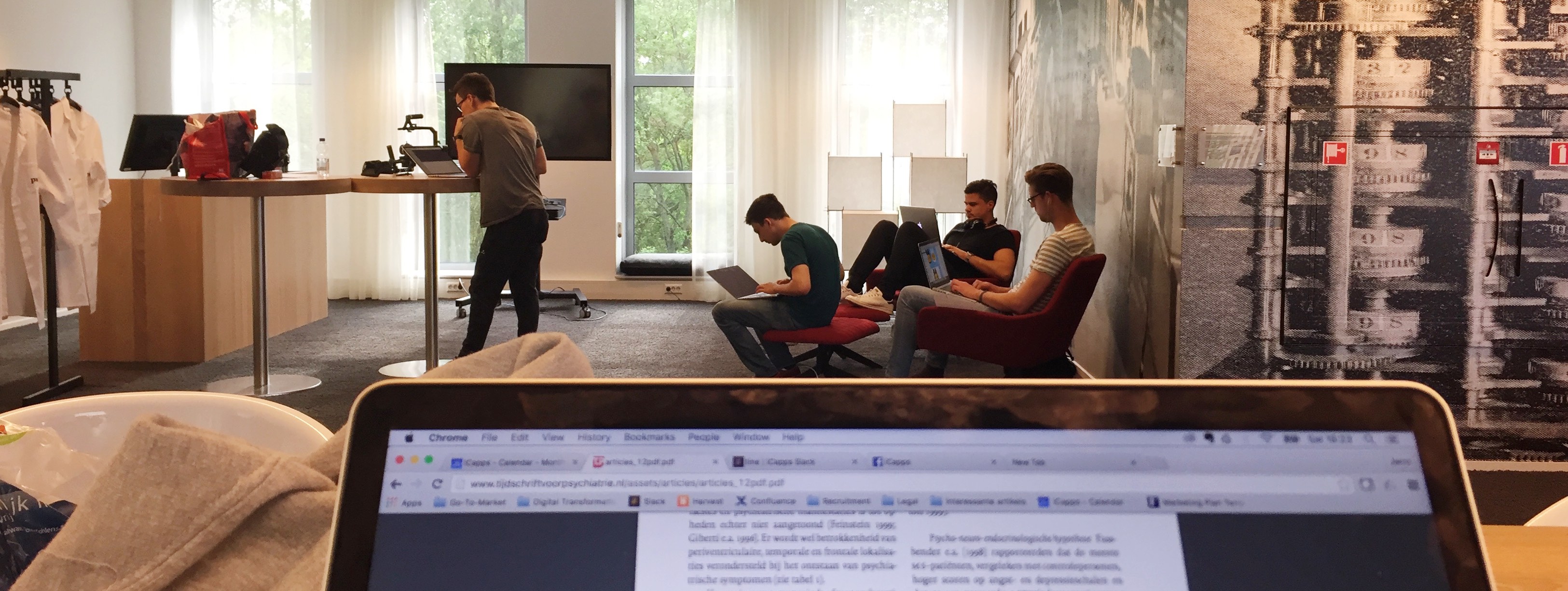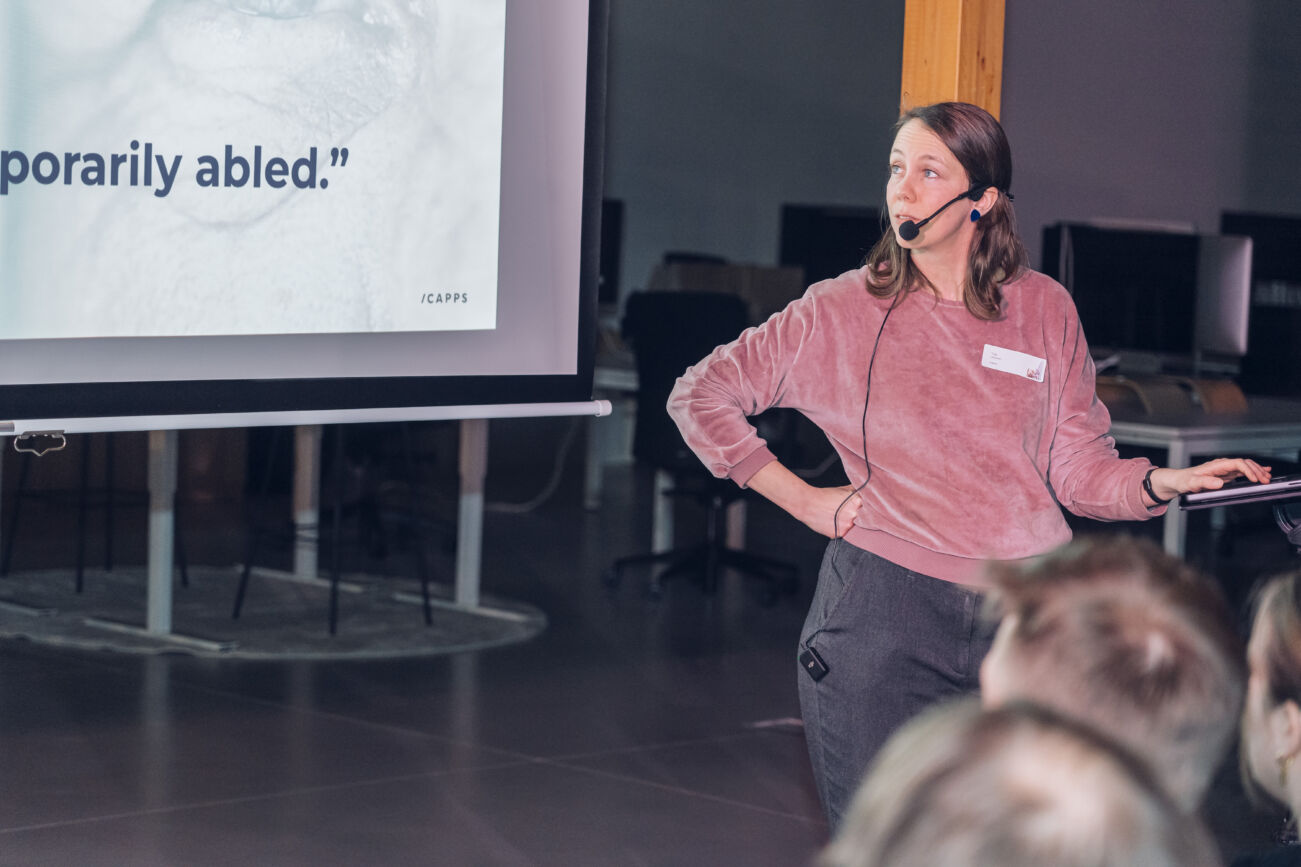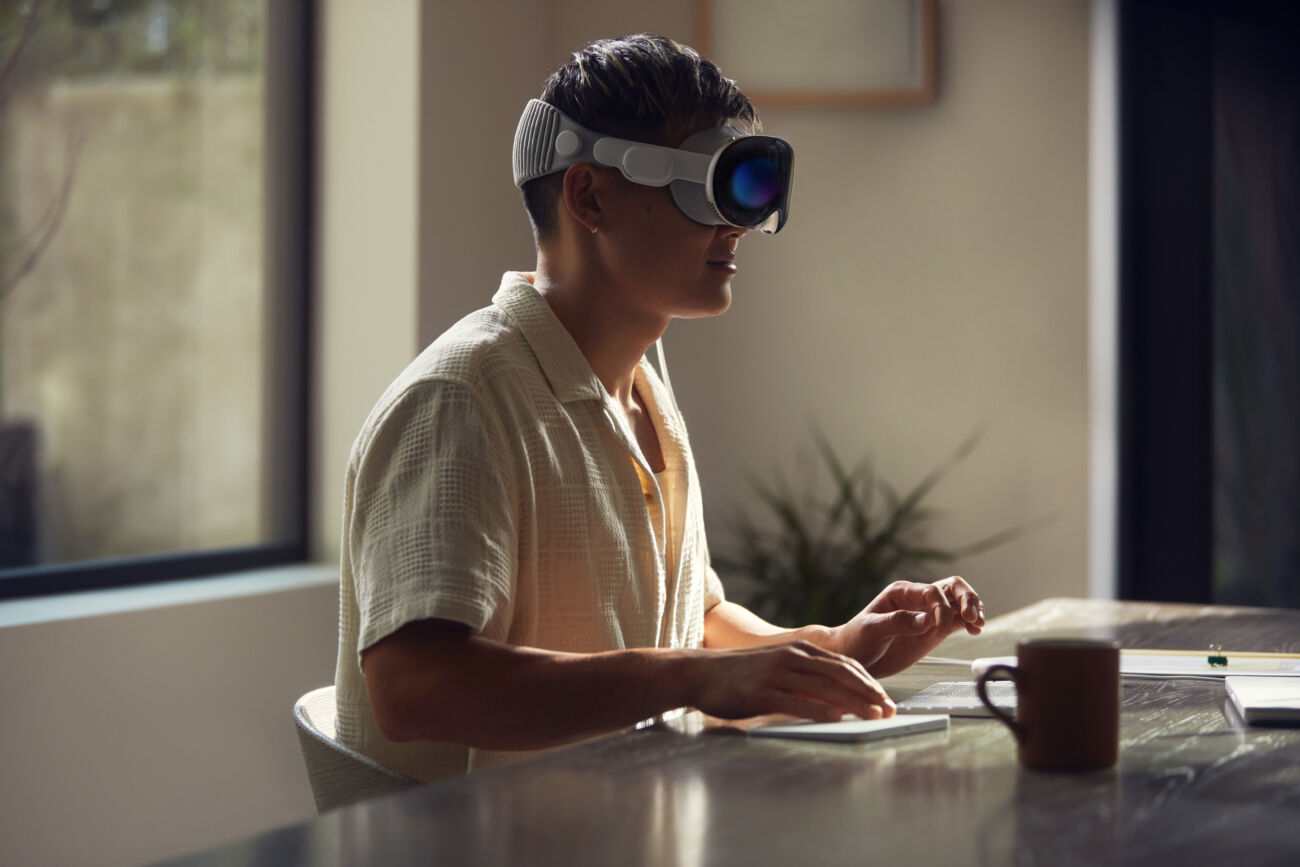On a Friday evening in May, 10 of our beloved icapps team members hit the road to Amsterdam. They all signed up to participate in the MS Hackathon to take on the battle against MS. No less than 150 doctors, hackers, developers, engineers, MS patients and creatives willingly decided to be locked inside the offices of PwC for 36 hours.
During those 36 hours, 21 teams worked around the clock to draw up a concept that could give doctors and researchers new insights into the disease multiple sclerosis or an idea that could increase the quality of life of people with MS and their loved ones.

What is MS?
MS or Multiple Sclerosis is an autoimmune disease that impacts the brain and spinal cord (central nervous system) that controls everything we do whether it's taking a physical step or solving a complex problem. What causes MS is still one of the main medical questions being asked today. Something triggers the immune system to damage the myelin that insulates wire-like nerve fibres, which leads to a disruption of signals to and from the brain.
Because communication signals are being interrupted, unpredictable symptoms occur, such as: numbness, tingling, mood changes, memory problems, pain, fatigue, blindness or paralysis. The code to solving Multiple Sclerosis is so complex to crack because everyone's experience is different and the losses may be temporary or long lasting.
Why did icapps participate?
At icapps, we are always up for a challenge, whether it is a technical one, like building a complex app from the ground up, or a conceptual one that makes people’s lives easier.
But it's about more than just a challenge, it's about real people, real pain. And sometimes it hits close to home. Two members of our team have a parent that is diagnosed with MS. They are familiar with the impact MS has on a patient, their family, friends, and so on. As we wanted to support our team members and the entire MS community, we teamed up and signed up for the MS Hackathon so that we could leave our mark and help out.
Conceptualisation
We had been brainstorming a lot in the weeks leading up to the MS Hackathon. We also went through the available research to have a more profound understanding of the problem. A study commissioned by Sanofi Genzyme (2016) showed that more than 50% of the respondents felt alone and isolated. 55% told that they felt like their loved ones did not understand the challenges they were facing as MS patients. 30% lacked emotional support from family and friends. As a result, 40% of people with MS were reserved of talking about the disease. That’s just harsh.
We came up with many ideas, each focusing on a different aspect of MS. We wanted to have a meaningful impact on the life of people with MS. We didn’t mind questioning our own ideas. We even changed our initial idea on the evening before the MS Hackathon started. Maybe it were the beers, maybe it was last-minute stress, but we changed focus, because it was just a better idea.
We wanted to develop a product that would both improve the quality of life of MS patients and their caretakers. While other teams often focused on objective data, our main focus lay on emotional data. We aimed at providing doctors with valuable insights in the situation and progress of a patient. That’s why we came up with Levi.

There are so many different symptoms of MS, they often say that MS has a thousand faces. It is hard to find someone who’s going through the same thing as you are. That’s where Levi comes in. In short, Levi is a mobile and web application that brings together 2 people with MS based on multiple parameters, such as movement, heart rate and the mental state of patients. It enables people with MS to interact with one another about the difficulties they were experiencing. They can chat about anything they’d like, they can tell their life story, talk about their hobbies, ask questions and share tips. This will lead to MS patients having more social interactions and the effects of depression many patients experience will be levelled out.
At first, we were still sceptical. You have to be. You have to find out if your product can be viable and lovable? By talking with multiple MS patients, we soon learned that there was a market. One patient in particular stood out. He told us a story that moved us all. He talked about the depressed phase he went through after being diagnosed with MS. He focused on all the things he wouldn’t be able to do anymore, like doing judo, one of his passions in life. However, he met someone who was diagnosed with MS, but who started with judo after he was diagnosed. This person inspired him and his distorted vision cleared up. He became aware that being diagnosed with MS is not the end. He shifted from focusing on what he couldn’t do anymore, to focusing on what he could do.
This positive thinking is what drives our concept and team. By connecting people with MS, we want to bring positivity back into their lives. And we all know positive thinking has a positive impact on health issues.
Meet Levi
What Levi does best is intelligent matching. Levi matches people based on their current state of mind. Simply put, Levi knows what you need at that specific time. If you are rather in a negative mood, Levi will notice and connect you with someone who is rather positive. People within the MS community will be able to help each other. As the chat is constantly being analysed by Watson (IBM’s supercomputer that analyses unstructured data), we can provide real time information on what the impact of your conversation is on the emotional state of the other MS patient.
We examined the possibilities of Apple’s HealthKit, ResearchKit & CareKit and decided to implement HealthKit. It provides the app with sensor data, such as movement, heart rate… This will lead to better profiles and better analytics that actually have an added value. The app will allow doctors to download a report on their patient for a small fee. The report will provide the doctor with all the information he needs, decreasing the frequency a patient needs to meet up with his doctor or decrease the duration of the consultation. Governments and healthcare companies will benefit from the savings this entails.
Over the course of the weekend, we developed a working prototype. But of course, we were already thinking of the next steps. New features can make the app even better and more helpful. We would like to implement a paid service, which would allow patients to be connected with professionals when they have specific questions about their symptoms, medication... These professionals are granted access to the patient’s data, which will enable him to give more personalised and more solid answers to questions.
Caretakers, family, and friends of people with MS told us that they have a need for the services of Levi as well. They are faced with many changes and barriers, they need to cope with the diagnosis of their loved ones as well. Many caretakers feel helpless. They would benefit from having a conversation with someone going through the same thing. They could share their stories, tips and ask questions. A very meaningful feature that can be implemented very easily.
The app could also be used to monitor the specific drugs a patient is on and its dosage. The app would be able to create a link with sensor and mental state data. This could provide pharmaceutical and medical companies with valuable information. Think of analyses of the effects of certain types or dosages of drugs on patients with a similar profile. It would allow doctors to better prescribe certain drugs based on the positive effects it had on patients with a similar profile.
What do people think of the app?
During the hackathon we talked with a lot of people. People with MS, their partners, consultants, start up coaches, experts from Apple, experts from IBM… You name them, we talked with them. Each and everyone of them gave valuable insights and helped us in constructing the concept to what it is today. They all believed in our concept, and immediately understood the wants and needs we wished to address.
What's next?
We still strongly believe in Levi. So, it’s not the end, it’s just the beginning. We’re currently talking with a doctor who’s specialised in MS and with the help of the MS Liga in Belgium, we would like to collect additional feedback. We’ll do anything we can to bring this product to the market.


